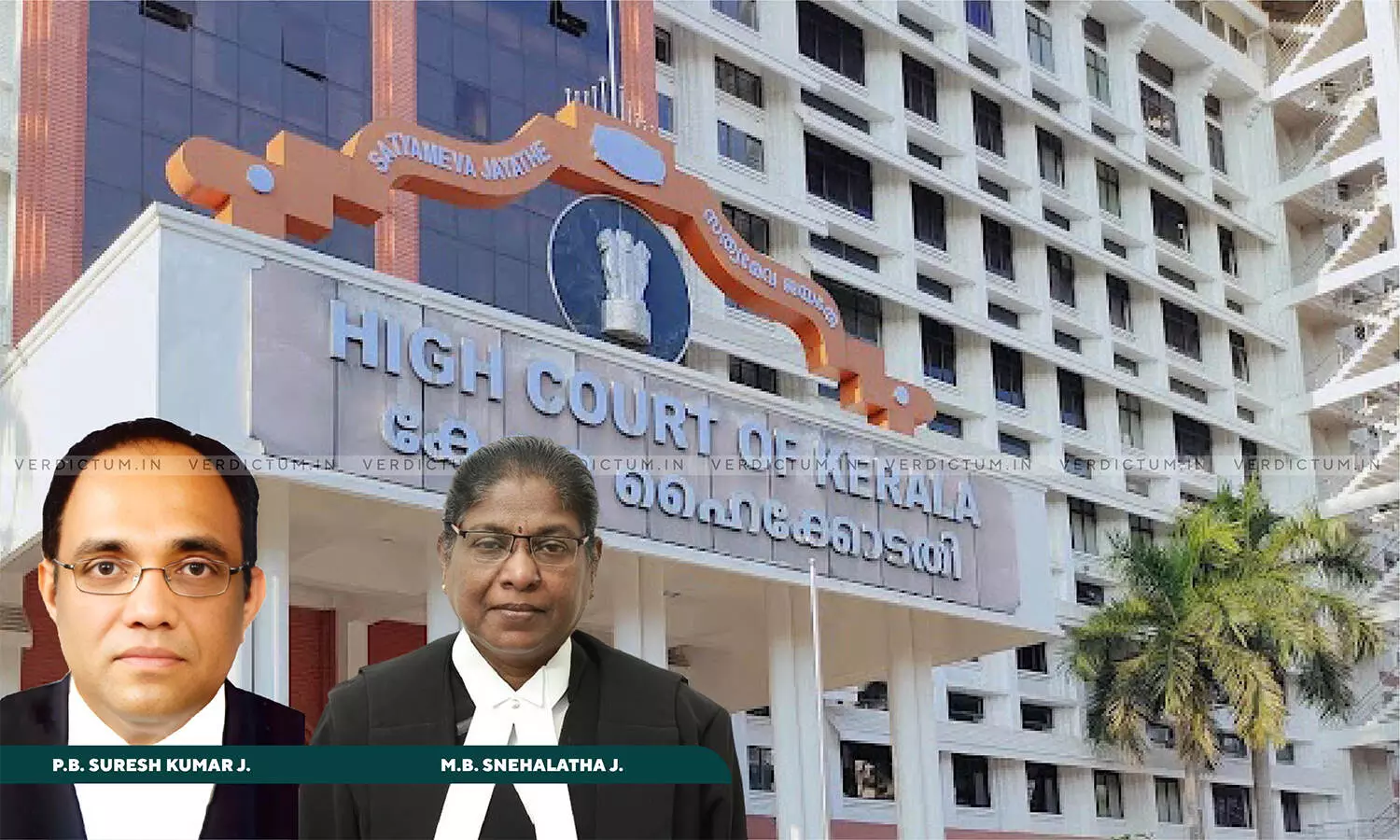
There Can’t Be Conviction Solely Based On Medical Evidence: Kerala HC Acquits Man Being Accused Of Killing His Minor Daughter
 |
|The Kerala High Court acquitted a man who was accused of killing his seven-year-old daughter on account that there cannot be conviction solely based on the medical evidence.
The accused filed an appeal against the judgment of Additional Sessions Judge by which he was convicted and sentenced for the offence punishable under Section 302 of the Indian Penal Code (IPC).
A Division Bench of Justice P.B. Suresh Kumar and Justice M.B. Snehalatha observed, “If Section 106 of the Indian Evidence Act has no application to the facts, the only evidence available in the case is the medical evidence which is not substantive evidence, and there cannot be any conviction solely based on the medical evidence [See Balaji Gunthu Dhule v. State of Maharashtra, (2012) 11 SCC 685 and Nagendra Sah v. State of Bihar, (2021) 10 SCC 725].”
Senior Advocate P. Vijaya Bhanu represented the appellant/accused while Special Public Prosecutor Ambika Devi represented the respondent/State.
Facts of the Case -
The victim was a physically challenged girl aged 7 years and the accused was her father. She suffered a serious head injury and hence, a case was registered by the police based on a complaint. The said complaint was lodged by the brother of the wife of the accused as he was informed that the accused caused the death of the victim out of anger. The accusation in the final report was that in 2010, at night, the accused committed murder of the victim by holding her upside down by her legs and hitting her with force on to the floor of the veranda of the house, causing her head to get smashed on the floor.
The victim succumbed to the injury sustained on the way to the hospital. The Sessions Court framed charge against the accused to which he pleaded not guilty. When the incriminating circumstances were put to the accused in terms of the provisions contained in Section 313 of the Code of Criminal Procedure (CrPC), the accused denied the same. The Sessions Court held the accused guilty of the offence, convicted him, and sentenced him to undergo imprisonment for life. Being aggrieved by this, he was before the High Court.
The High Court in the above context of the case noted, “It is seen that the Court of Session found, based on medical evidence let in by the prosecution, that the injury suffered by the victim would not have been caused on account of a fall from an elevated place as deposed by the witnesses examined on the side of the prosecution. As such, according to the Court of Session, inasmuch as the occurrence took place inside the house of the accused, in the light of the provision contained in Section 106 of the Indian Evidence Act, the accused is duty bound to explain the homicidal death of his daughter, and the non-explanation of the same would be a strong circumstance against the accused that he is responsible for commission of the crime.”
The Court said that in the case of Selvamani v. State Rep. by the Inspector of Police (2024 KHC OnLine 6272), the proposition laid down by the Apex Court was that the evidence of hostile witnesses cannot be discarded as a whole, and relevant parts thereof which are admissible in law can certainly be used by the prosecution. It added that such judgment has no application to the case and hence, the accused is entitled to the benefit of doubt.
Accordingly, the Court allowed the criminal appeal and set aside the conviction of the appellant.
Cause Title- Abu @ Abdulla v. State of Kerala (Neutral Citation:2024:KER:34564)
Appearance:
Appellant: Senior Advocate P. Vijaya Bhanu, Advocates Mitha Sudhindran, and M. Revikrishnan.
Respondent: Spl. P.P. Ambika Devi S.